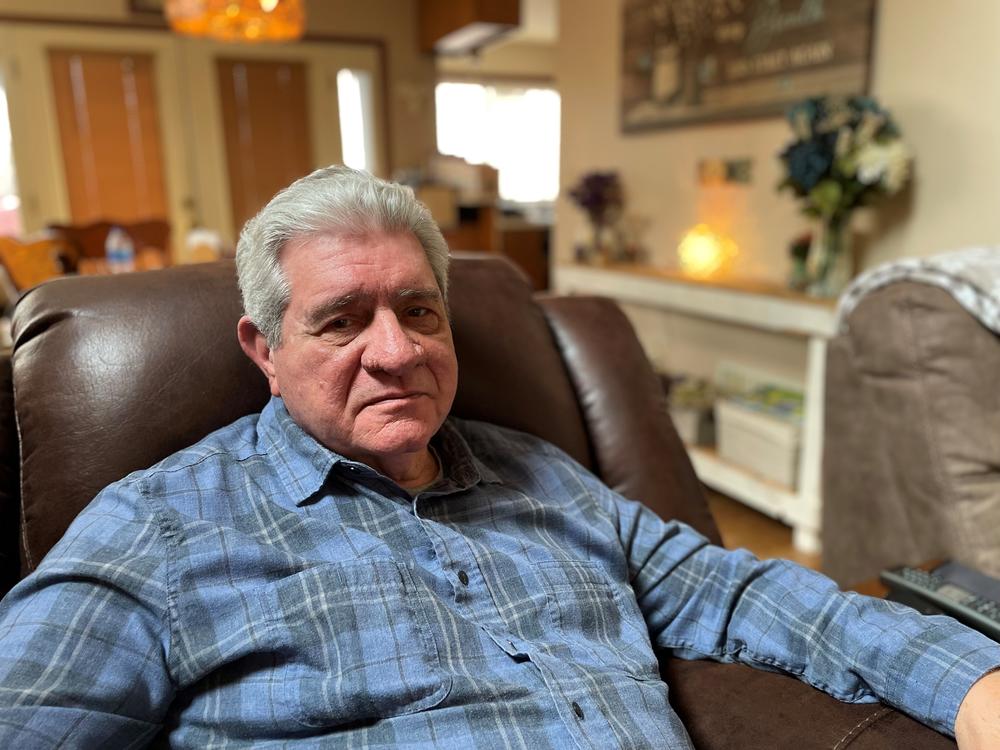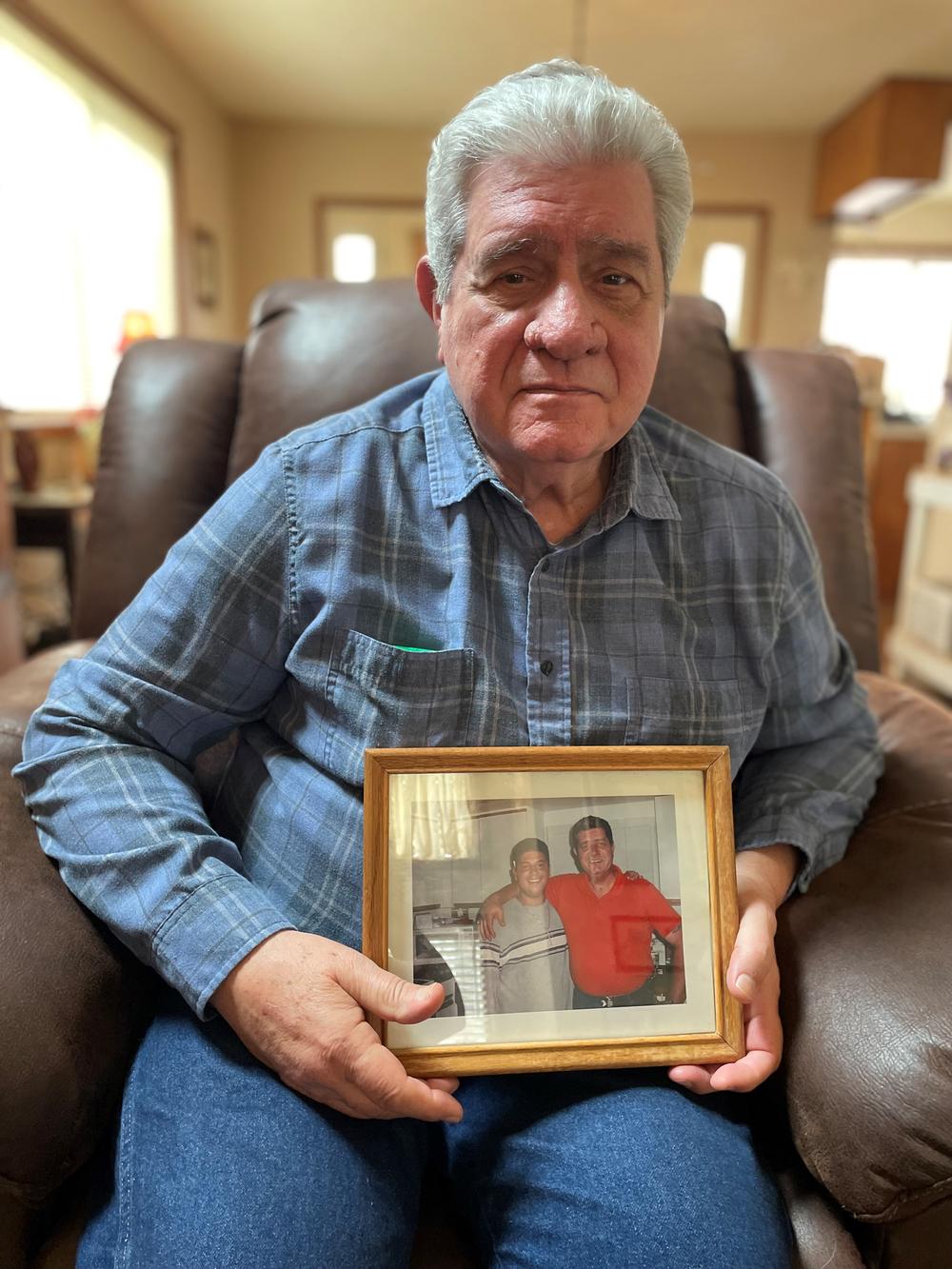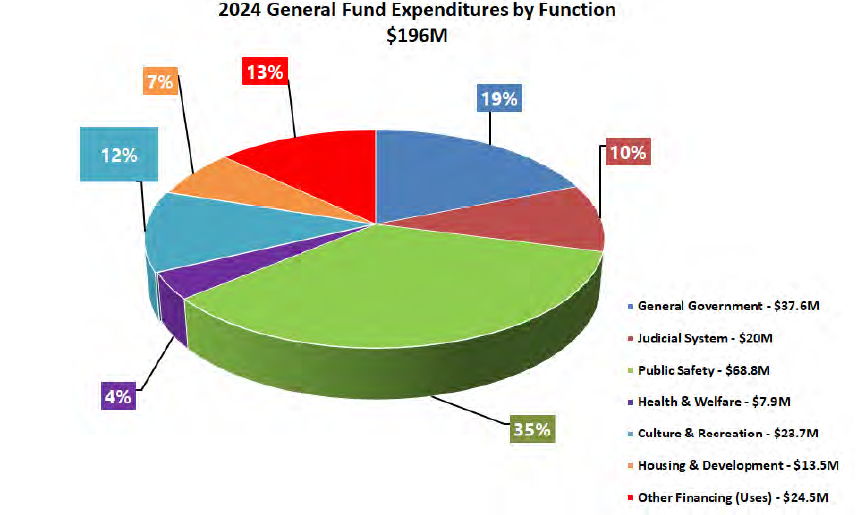
Caption
Matthew Pesce is a retired Vietnam veteran who volunteers as a chaplain to local Veterans of Foreign Wars posts in Forsyth and Dawson counties.
Credit: Ellen Eldridge / GPB News
LISTEN: Commissioners in Forsyth County are split on whether to use federal COVID relief funds for mental health care now that the planned building costs exceed the budget by $12 million. The plan is now up in the air, to the frustration of many residents. GPB’s Ellen Eldridge has more.

Matthew Pesce is a retired Vietnam veteran who volunteers as a chaplain to local Veterans of Foreign Wars posts in Forsyth and Dawson counties.
Walking into Matthew Pesce’s living room feels like entering a therapist’s office, with soft music, scented candles and colorful bowls of candy within reach.
Pesce is the chaplain for local Veterans of Foreign Wars posts in Forsyth and Dawson counties, and he regularly visits veterans who are dying in hospice care.
"I just try to work with what they're feeling and help them find some peace," Pesce said. "A guy who's dying, he's got a lot on his mind. And veterans in particular. They don't have a lot of people they can talk to about what happened to them and what they went through."
A comforting presence and attention make so much difference. Pesce listens without preaching.
"Most veterans don't talk too much about their experiences unless they're with another veteran. So I try to give them that," he said. "And it's something I enjoy very much. The comfort it gives them, knowing that somebody cares enough to come and see them. It's good stuff."
But the 76-year-old Vietnam veteran is angry because it's not enough.
As suicide rates continue to rise, mental health services are getting harder to find. That's what brought Pesce to the podium at a Feb. 5 called meeting of the Forsyth County Board of Commissioners.
Pesce has a Purple Heart and three bullet holes in his body.
"You're probably aware of the fact that combat changes people," Pesce said during public comment. "I am a combat veteran. I was wounded in action. I carried four guys off the battlefield."
Twenty years ago, the Department of Veterans Affairs provided Pesce with a psychiatrist and weekly visits with a psychologist. Now, he speaks once every three months with a social worker.

Matthew Pesce holds a framed photo of him and his son, who died by suicide.
"Veteran suicide is the No. 1 killer of veterans," Pesce told commissioners. "It's also the No. 1 killer of children."
That's not just a statistic to Pesce. He lost his son to suicide four years ago.
"I will never get over that," he said. "I still cry for him, and I will probably for the rest of my life."
Pesce told the commission this after they began discussing scrapping plans for a mental health crisis center.
Commissioners proposed in 2021 to use federal COVID dollars to provide emergency services and ongoing behavioral health care.
But, when the construction estimate came back $12 million over budget, commissioners questioned whether local tax dollars should be used to close the gap.
For two and half hours the commission heard feedback from Pesce and others, like Susan Saccone.
The 61-year-old certified peer specialist (CPS) has spent the last 15 years caring for her daughter, who has repeatedly attempted suicide.
"I had to drive her to every surrounding county except for Forsyth to get her services," Saccone told commissioners.
That includes two-hour drives from their home to Lawrenceville and Riverdale. She's been to 26 crisis stabilization units in the last 15 years.
"My daughter is alive because of me," she said. "Because I drove her to the facilities. I went and got her the help. For five weeks, we've had three social workers with our insurance company working, trying to get her outpatient services. There are still none. None in Forsyth County."
Without peer support and a facility to access services maintaining mental wellness becomes nearly impossible.
"We need this building," she begged.
Mental health services have been available from Georgia Highlands in Forsyth County since 2018, in response to community need.
The community health center opened in 1979 and serves about 23,000 patients, the majority of whom are uninsured and of low income, Georgia Highlands Medical Services CEO Todd Shifflet said at the Feb. 5 board meeting.
Highland Rivers has five clinical counselors, and, once a week, a telepsychiatrist whose position is funded with a grant that is about to run out, Shifflet said.
"I'm going to have to let that person go in about two months," he said. "Every day at Georgia Highlands we're having to say we can't help."
People without insurance are being turned away.
"It's just the folks that have nowhere else to go," he said. "And if you're an uninsured child in Forsyth County, it's really tough."

1 in 5 children between ages 13 and 18 has or will have a mental health condition, according to the Georgia chapter of the National Alliance for Mental Illness. Half of all cases of mental illness begin by age 14, and 75% occur before age 24.
Georgia Student Health Survey data show just how much students are struggling, NAMI Georgia Executive Director Kim Jones said, including nearly a quarter of Forsyth County students who said they have had serious thoughts of suicide, and 18% said they were depressed or withdrawn.
These are slightly higher than Fulton County numbers, Jones said.
"Your children have a problem here in Forsyth County with their mental health, and they are telling us this in an anonymous survey," Jones said. "And we can only imagine what students who are speaking the truth in these surveys may be going through."
A new study commissioned by the state suggests Georgia needs eight more behavioral health crisis centers in the next decade, including one in the Georgia region north of Atlanta, which includes Forsyth County.
But it doesn't have to be.
When it opens in Atlanta in June, Fulton County’s 15-bed crisis center will be the first in Georgia to be publicly funded.
“Despite being home to 10% of Georgia’s population, Fulton County does not currently have a dedicated Behavioral Health Crisis Center,” said the Georgia Department of Behavioral Health and Developmental Disabilities' Commissioner Kevin Tanner in a news release.
The Fiscal Year 2024 (FY 2024) budget adopted by the General Assembly includes $6,651,470 for this Behavioral Health Crisis Center (BHCC). Services will be available 24 hours a day, seven days a week in part of a 48,000-square-foot facility on a 29-acre parcel owned by the county. In addition to the 15 beds, the center will have an 18-chair observation center.
The DBHDD worked closely with Fulton County and the Georgia General Assembly to develop the Fulton County Behavioral Health Care Center in Southwest Atlanta.
Fulton is using $15 million in federal COVID-relief funds in addition to state money, and the state is promising $10 million a year for operation.
Forsyth County Commissioner Laura Semanson said Feb. 5 that commissioners have a responsibility to do something that would make a difference to their constituents.
"It feels good to build a facility that would serve all of North Georgia, especially if we're using federal money," she said. "But we don't — we don't even know that it's going to serve our citizens, and it is going to cost more money than has been provided, and the state has not come to the table yet."
Commissioner Kerry Hill spoke with Tanner, who agreed there are many other options and different ways to meet behavioral health needs and solve mental health problems.
"If the state is needs a crisis center, the state should build a crisis center," Hill said. "I think Forsyth County can take this money that we have allotted for this, and work with DBHDD to come up with Forsyth County solutions that mainly target to support our Forsyth County citizens."
Which means unless the Forsyth County commission decides to spend some of its own money, Forsyth County voters will still be looking across county lines for mental health care.
The next Board of Commissioners meeting is March 7, with public comment open at 5 p.m.